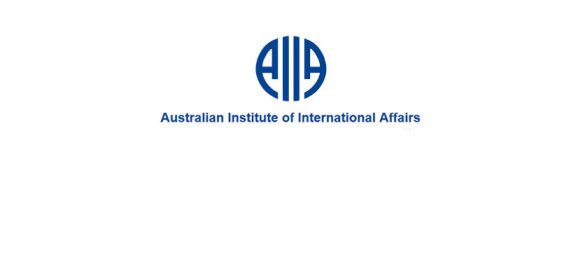Section: Australian Institute of International Affairs (Australia)
Looking for Terrorists in Alderaan Places
In September 2009, an article from the Economist detailed a significant lack of counterinsurgency tactics in the original Star Wars sci-fi blockbusters. The publication explained that the movie-going public ‘hate insurgency and counterinsurgency.’ This might have been true in the era of Star Wars’ cinematic release in the aftermath of...
Australia and Kazakhstan: a Steppe Forward for Bilateral Ties
Central Asia does not fit comfortably in Europe or the Middle East and can present a challenge for Australian policymakers. However its largest and wealthiest state presents an interesting avenue for Canberra to engage more closely with the region. Kazakhstan, the world’s largest landlocked country and home to over seventeen million people,...
Russia, Turkey and the US: Between the Terrible and the Catastrophic
The downing of Russia’s plane by Turkish military forces over the skies of the Syrian-Turkish border has added yet another layer of complexity to the vortex of conflict in the Middle East. Most of the prior concern had focused on the prospect of the US clashing with Russia over the skies of Syria. But an October agreement between the two...
The Importance of Measuring Terrorism
The Institute for Economics and Peace has released the 2015 edition of its Global Terrorism Index only days after the terrible attacks in Beirut and Paris – and the numbers paint a disturbing picture. The Index measures the direct and indirect impact of terrorism in 162 countries in terms of its effect on lives lost, injuries, property damage and...
AIIA National Conference: Contributing to Global Issues
Professor Brian Schmidt AC, Nobel Prize in Physics and incoming Vice-Chancellor of the ANU: “Australia’s future prosperity will be tied to the science we engage with.” With his opening comment, Professor Schmidt postulated that science was an international pursuit, with knowledge and science a shared, almost entirely open, global asset. He...
Minister for Foreign Affairs The Hon Julie Bishop MP Address to the AIIA
Distinguished guests, ambassadors, my colleague the Honourable Bronwyn Bishop, ladies and gentlemen, it is an absolute pleasure to be here today among so many respected names in foreign affairs. The Australian Institute of International Affairs is one of our nation’s premier think tanks and contributes a great deal to the development and...
Much More to be Done Before MH17 Findings Can Support a War Crime Trial
On Tuesday, the Dutch Safety Board released its report into the downing of Malaysian Airlines flight MH17 over Ukraine in July 2014. All on board – 298 people – were killed. MH17 is said to have been downed by a Russian-made BUK surface-to-air missile, launched from somewhere in a 320-square-kilometre area in eastern Ukraine. A warhead, carried...
The Warrior President: Putin’s New Folly
Vladimir Putin’s bombing campaign in Syria is a direct consequence of his failure in Ukraine. It is too early to assess whether Russia’s airstrikes will save the Assad regime, but they have given a new lease of life to the band of commentators whose fulminations pass for political discussion on Russian television. With the winding...
Presidents, the Pope and Putin: a Heady Mix at the 70th UNGA
The UN General Assembly’s annual meeting last month saw frosty and brief exchanges between the Russian and US Presidents, movement on the Sustainable Development goals, and encouraging talks on the Joint Comprehensive Plan of Action for Iran. But Vladimir Putin sucked the oxygen out of the meeting, with his announcement about increased...
Moving to the Far Right in Hungary
Challenged by the growing popularity of the country’s far-right party, Jobbik, the Hungarian government is radicalising its agenda in order to win back disgruntled voters. April 12th 2015 is was an unneventful day in most countries; certainly not for Hungary. In local elections held in the town of Tapolca, the candidate for the Movement for...



